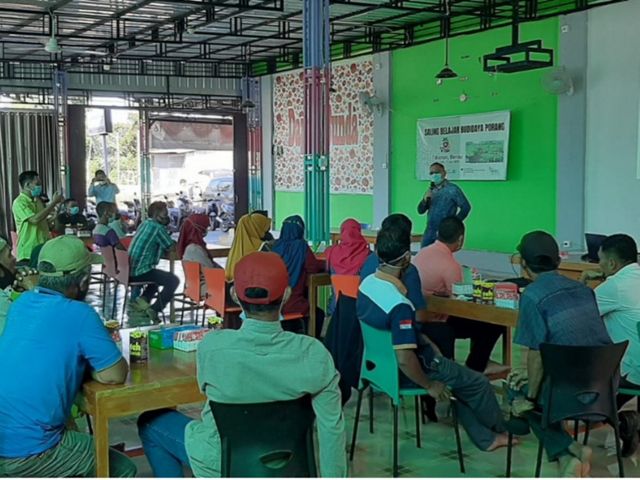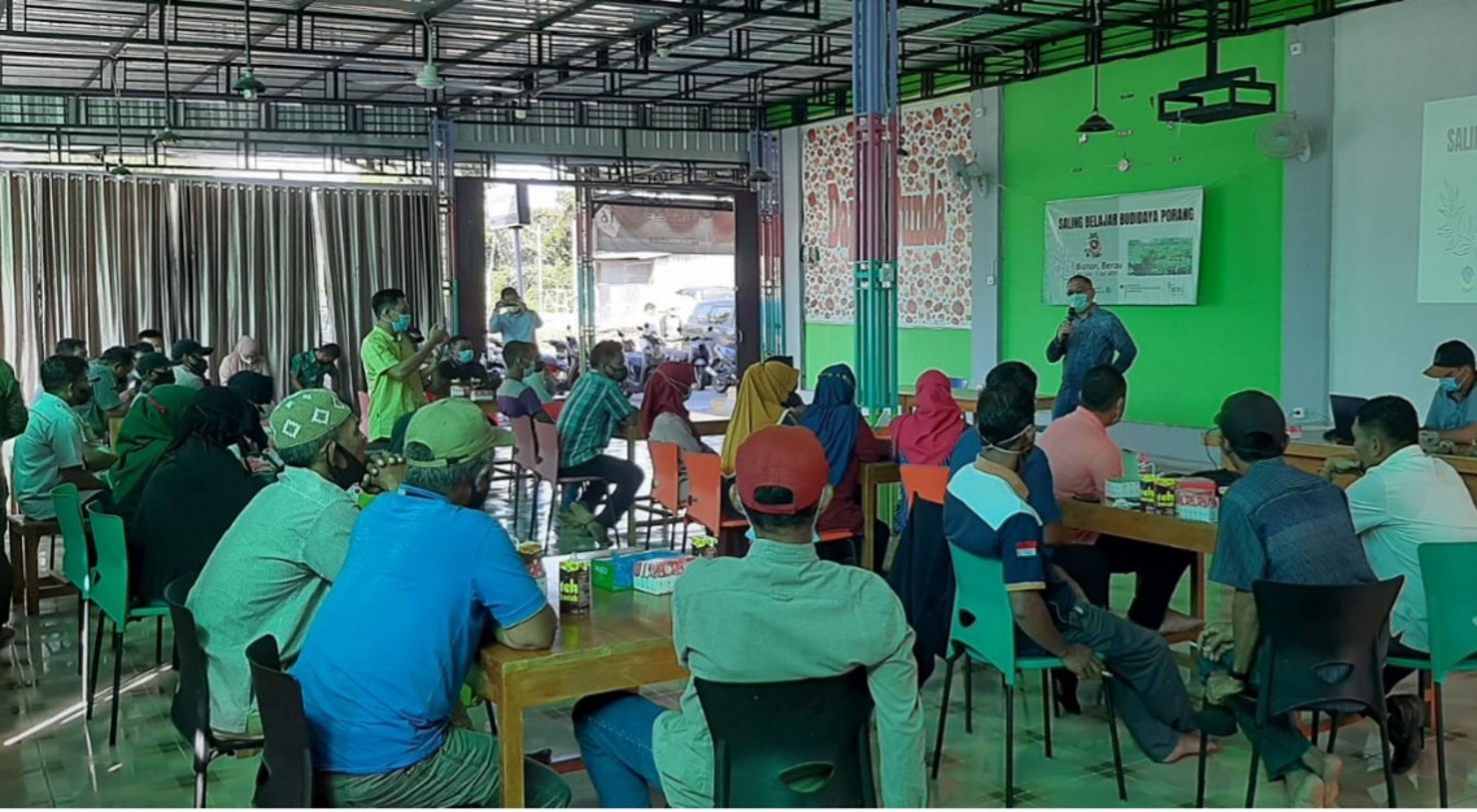Suku Dayak Basap dikenal sebagai penghuni asli Kampung Biatan Bapinang, Kecamatan Biatan Kabupaten Berau, Kalimantan Timur. Berdasarkan mitologi masyarakat setempat, The Dayak Basap tribe is widely known as the original residents of Biatan Bapinang village in the Biatan subdistrict, Berau, East Kalimantan. The local myth is that the town was initially called "Nuntulung" due to the overgrowth of shrubbery similar to keladi (a taro plant) around the village. In the local tongue, the plant was called "Bintulung".
The Dayak Basap tribe was open to migrants. That is why today's residents of Biatan Bapinang village hail themselves from many places. They are of the Bugis tribe, Javanese, Sundanese, Sasak, Flores, Balinese, Batak, and others.
The Biatan Bapinang village has a total area of 12,354 hectares and was inhabited by 238 families or 801 people. Most of the residents were farmers. Their staple food crops were rice and corn. They would prepare their honey-sweet corn into various meals, while subsidised corn from the Agriculture Office is sold as animal fodder. The most common plantation crops were oil palm and sahang/pepper. Their pepper (sahang) harvest was usually sold for long-term needs. Some families also grow vegetables, some types of tubers and rhizomes, for their consumption and sale.

Oil Palm
Oil Palm was one of the plantation commodities farmed in Biatan Bapinang village. The people plant oil palm because of its short harvest time—every 15 to 20 days. Therefore, they rely on the harvest to meet their daily needs. Currently, 70 per cent of the people own their oil palm land, each claiming up to 6 hectares. In 2011, the residents of Biatan Bapinang received support from an elected provincial legislative (DPRD Kaltim) member, the (late) H. Muharram, S.Pd., M.M., who facilitated them in establishing a cooperative. This independent oil palm cooperative lasted until September 2020 before becoming inactive. Aside from locally-owned oil palm plantations, Biatan Bapinang village was also the location of two operating oil palm companies, PT Buana Mudantara and PT Andalas.
Potential
The Biatan Bapinang village has biodiversity and eco-tourism development potentials that need upgrading. This village is also home to 6.5-hectare of mangrove forests, situated within an Other-Use Area (APL), with a hot spring in the middle. Unfortunately, the legality of the right to manage the mangrove and its hot spring tourism is still under the jurisdiction of the regional government, in this case, the Berau Tourism Office. However, the management rights should be fully delegated to the village administration for better participatory development. The Village-Owned Enterprise (BUMK) can acquire a more significant portion and maximises its management role, so the economic benefits can directly affect the village and its people.
Other potentials of the Biatan Bapinang village are their rattan wicker handicraft, various plant-based snacks (cassava leaves, papaya leaves, and bitter gourd/pare), and many more. BUMK's role is very much needed in facilitating and maximising business opportunities as a form of a sustainable economy.
SIGAP Implementation
For the past two years (2020-2022), the Nusantara Nature Conservation Foundation (YKAN) and the Foundation for Development and Improvement of Ummah Resources (YP2SU) applied the SIGAP (Inspirational Community Acts for Change) approach at Biatan Bapinang village. This mentorship aims to improve state governance, economic growth for the people, and conservation of critical natural resources.
The most significant output from this activity is the establishment of a High Conservation Value Area (ANKT) covering approximately 5,121 hectares in Biatan Bapinang village. The village conservation body manages this area, namely the Tourism Awareness Group (Pokdarwis) Mampanas Nuntulung. The chairperson of this body was Wandra Hardinata (2022), who also facilitated local SIGAP programmes in oil palm plantations.
In addition to the ANKT, the Biatan Bapinang village had also successfully outlined their Village Mid-Term Development Plan that they drafted in a participatory manner. The mentorship with the SIGAP approach also aided in constructing a 3D map of the village and a Village Land-Use Plan map.
Regarding the conservation aspect, the people had installed signages in conservation areas and conducted routine patrols. Concerning their economic well-being, residents are farming kelulut (stingless) bees as their alternative source of income. There is also an increase in the Pokdarwis' organisational capacity to manage the village's tourism potential.


